A boiling sugar cane juice seen during the processing of panela in a rural sugar cane mill in Valle del Cauca, Colombia.
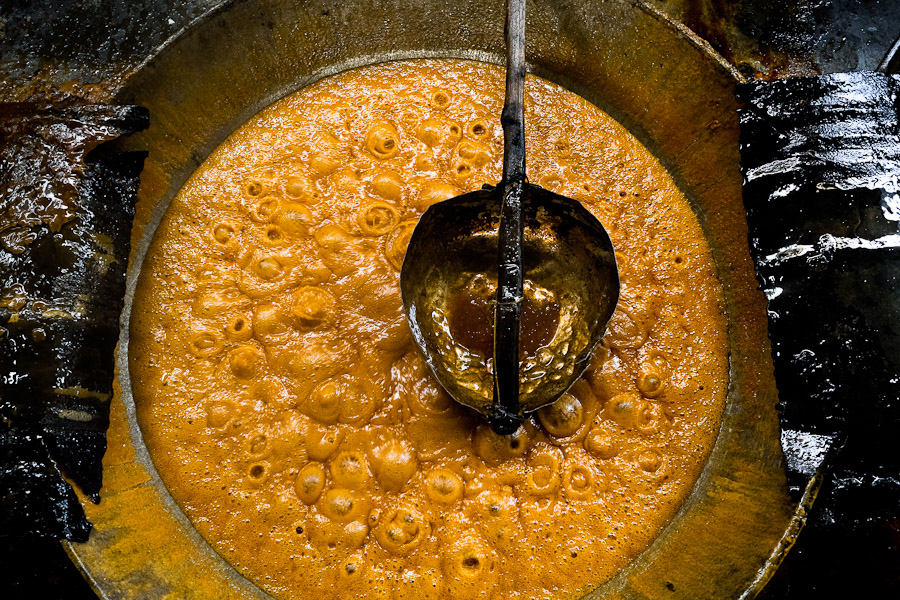
A Colombian peasant pours hot sugar cane juice into a cooking pot during the processing of panela in a rural sugar cane mill (trapiche) in Valle del Cauca, Colombia.

A hot mass of sugar cane juice seen during the processing of panela in a rural sugar cane mill in Valle del Cauca, Colombia.

A Colombian peasant mixes a hot mass of sugar cane juice during the processing of panela in a rural sugar cane mill (trapiche) in Valle del Cauca, Colombia.

Solidified sticky fibres of sugar cane juice seen during the processing of panela in a rural sugar cane mill in Valle del Cauca, Colombia.
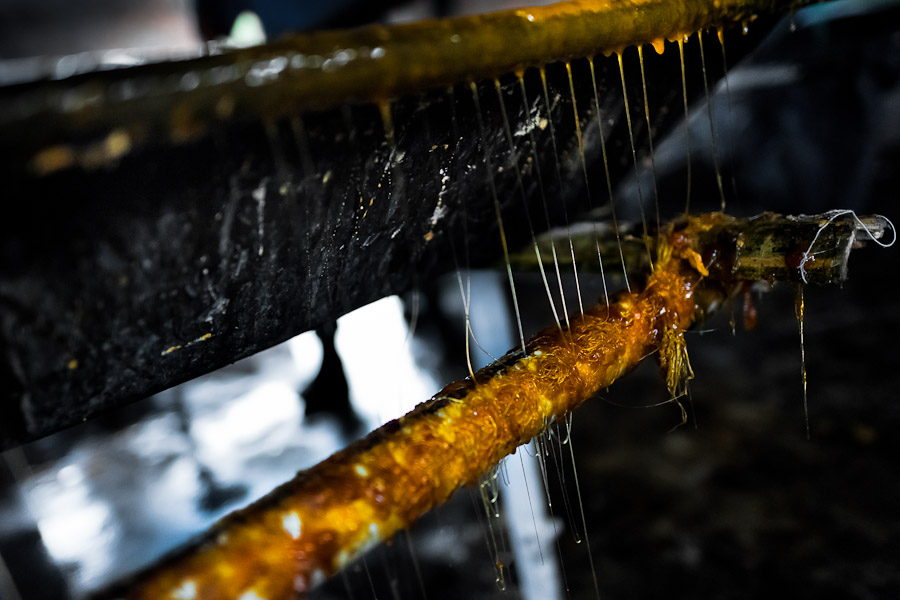
A Colombian peasant mixes a hot mass of sugar cane juice during the processing of panela in a rural sugar cane mill (trapiche) in Valle del Cauca, Colombia.
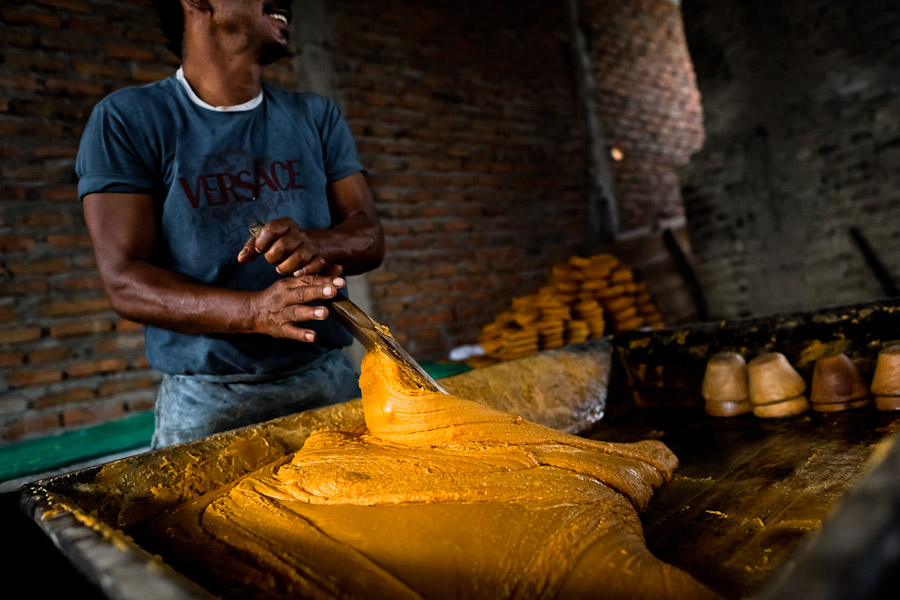
Rounded panela blocks arranged to solidify during the processing of panela in a rural sugar cane mill in Valle del Cauca, Colombia.
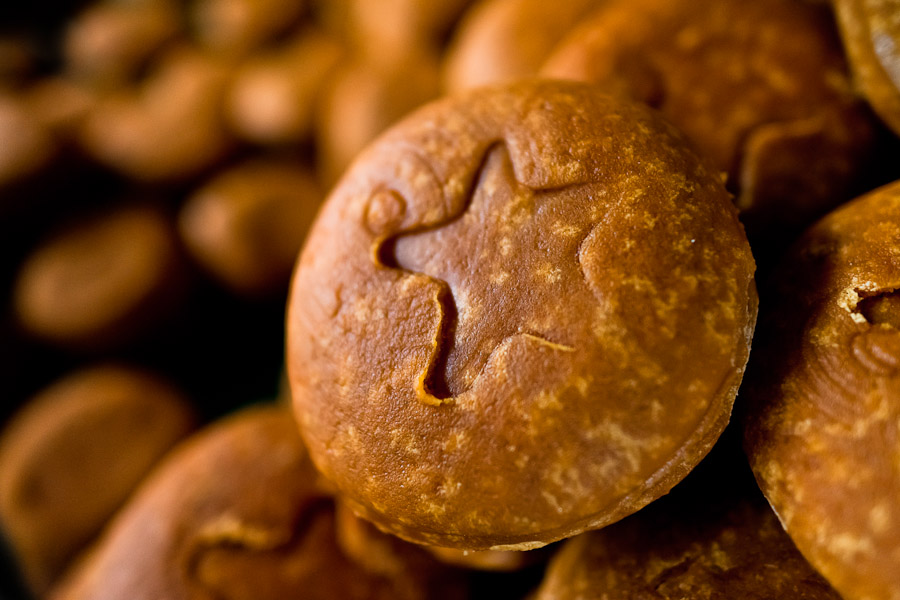
Panela
Santa Ana, Valle del Cauca, Colombia – May 2012
Panela, a solid block of raw, unrefined sugar, is made by cooking and evaporation of the sugar cane juice into a golden, sticky syrup which is then poured into the wooden molds and allowed to solidify. Having the taste like a cross between molasses and brown sugar, panela is served as a hot or cold infusion (aguapanela). Due to the large amounts of proteins, vitamins and minerals, panela is believed to have healing powers. Cheaper than sugar, it is consumed by the majority of Colombians and it is a major source of calories for children from families with low socioeconomic status. With more than 70,000 farms that cultivate sugarcane for mills, panela production is an important economic activity in the Colombian countryside, employing around 350,000 people and being the second largest source of jobs after agricultural coffee production.








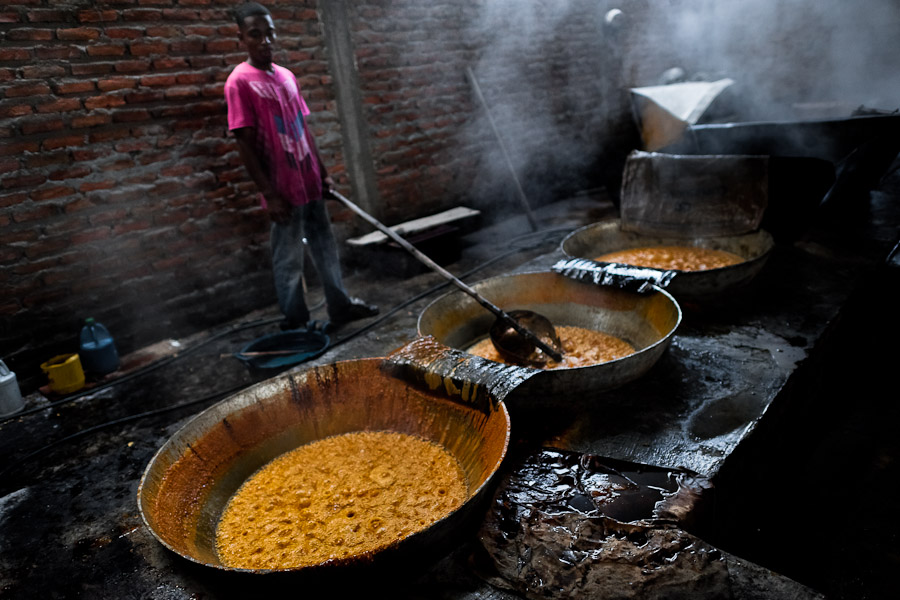
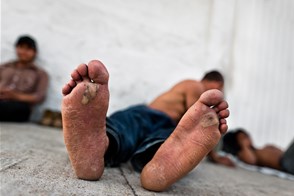
Gracias Alberto! Saludos a Caracas.
Jan Sochor
24.09.2012 – 09:04
Excellent photos, as always!
Alberto
23.09.2012 – 22:18